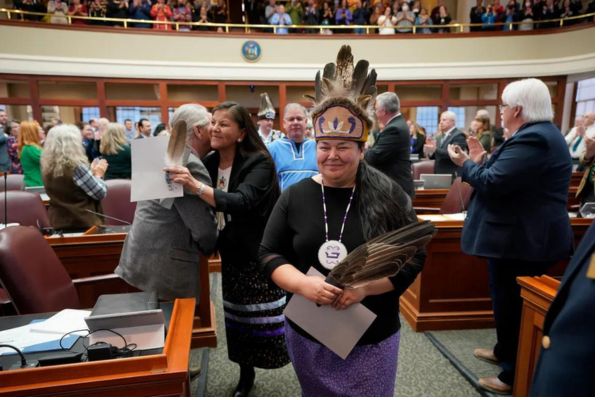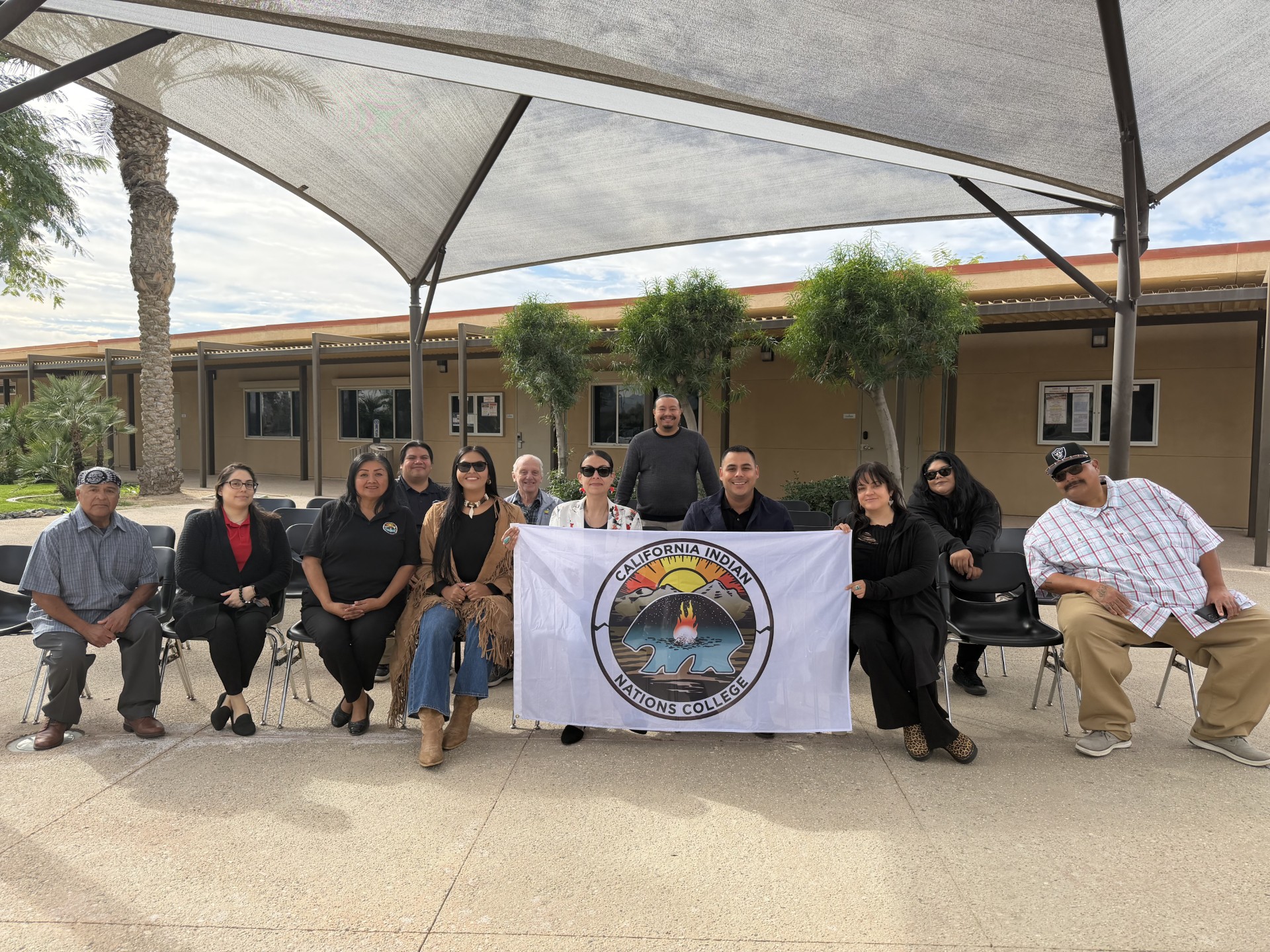
- Details
- By Michael Shepherd, Bangor Daily News
AUGUSTA, Maine — A sweeping overhaul of the state-tribal relationship is likely to be pushed into 2024 due to a need to lock down Republican support and little time to do so.
This story was originally published in the Bangor Daily News.
Tribes have made considerable progress in the Democratic-controlled State House over the past year, but action has been delayed on the wider effort in large part due to Gov. Janet Mills’ opposition to rewriting the landmark 1980 settlement that settled a massive tribal land claim.
It granted tribes tens of millions of dollars in exchange for being regulated by the state like cities and towns. That has left the Maine tribes without the wide power that others across the country have to manage gaming, natural resources and other policy areas on their land.
House Speaker Rachel Talbot Ross, D-Portland, has been leading negotiations aimed at crafting a bill with the two-thirds support needed to override a Mills veto, which would require the votes of around 20 Republicans in the House. However, members of the minority party were angered in late March when Democrats passed a state budget over their objections.
With lawmakers set to leave Augusta in roughly a month, such a proposal “just realistically wouldn’t stand a good showing,” House Minority Leader Billy Bob Faulkingham, R-Winter Harbor, who supports tribal sovereignty and has been negotiating with Talbot Ross, said, adding that 2024 is likely to be a good time to come to consensus.
“I’m as optimistic as I was before,” he said. “We’ve had a rough road, my caucus has, and maybe that road could smooth up a bit.”
A spokesperson for Talbot Ross did not respond to messages seeking comment, while representatives of the Penobscot and Maliseet tribes did not respond to calls. The Wabanaki Alliance, a group representing tribes, did not respond to a request for comment.
Mills began her tenure by promising to improve the historically fraught relationship between the state and tribes. She negotiated with them last year to give them control over a new mobile sports betting market that could be online by this fall, setting aside Talbot Ross’ bigger effort.
The Democratic governor cited a scheduling conflict when she skipped tribal chiefs’ historic address to the Legislature in March, which focused on their push for settlement changes. U.S. Rep. Jared Golden, a Democrat from the 2nd District who has been at odds with Mills on a sovereignty push of his own, was seated at the front of the chamber.
Tribes could win some more limited changes this year. Nearly every member of the Legislature’s judiciary panel voted in March to back a version of a Talbot Ross proposal that would require the state to print treaty obligations with tribes that are part of the Maine Constitution but were left out of copies under a round of 1876 changes aimed at making the document easier to read.
Mills opposes the bill, with her top lawyer testifying earlier this year that adding treaties to the Constitution could be “confusing and potentially destabilizing.” But lawmakers can still pass it with two-thirds approval in both chambers, which would put it on the November ballot for voter approval.
The first legislative votes on that issue could come this week, while Talbot Ross has introduced a more far-reaching measure that would give tribes veto power over state laws affecting them. There is a forthcoming bill that would mirror provisions of federal law around child abuse and neglect cases on tribal land.
Those three measures are part of a dispute between Mills and Talbot Ross. The governor’s office rebuked the speaker earlier this month after Talbot Ross’ chief of staff told his counterpart in Mills’ office that the speaker would not back Mills’ budget proposal unless the governor backed those three tribal bills.
Help us defend tribal sovereignty.
At Native News Online, our mission is rooted in telling the stories that strengthen sovereignty and uplift Indigenous voices — not just at year’s end, but every single day.
Because of your generosity last year, we were able to keep our reporters on the ground in tribal communities, at national gatherings and in the halls of Congress — covering the issues that matter most to Indian Country: sovereignty, culture, education, health and economic opportunity.
That support sustained us through a tough year in 2025. Now, as we look to the year ahead, we need your help right now to ensure warrior journalism remains strong — reporting that defends tribal sovereignty, amplifies Native truth, and holds power accountable.
 The stakes couldn't be higher. Your support keeps Native voices heard, Native stories told and Native sovereignty defended.
The stakes couldn't be higher. Your support keeps Native voices heard, Native stories told and Native sovereignty defended.
Stand with Warrior Journalism today.
Levi Rickert (Potawatomi), Editor & Publisher







